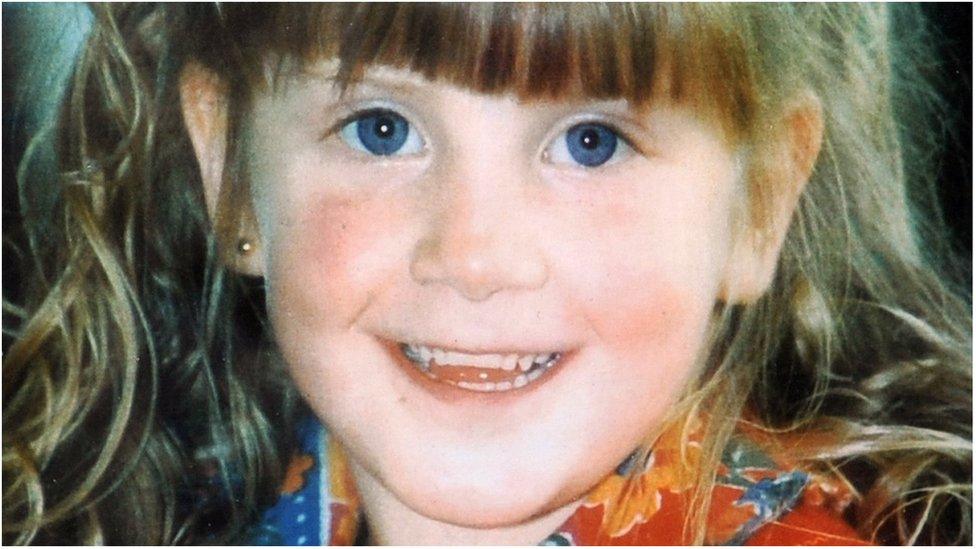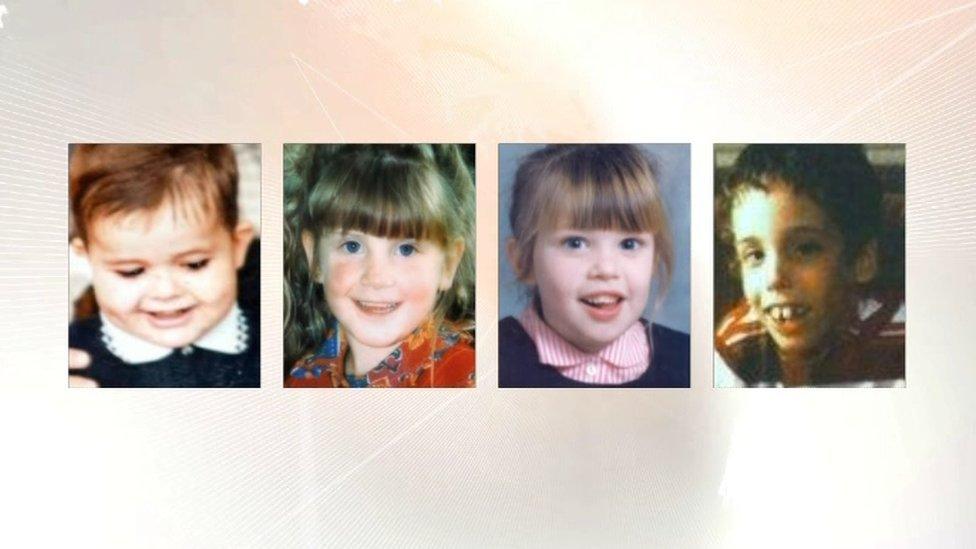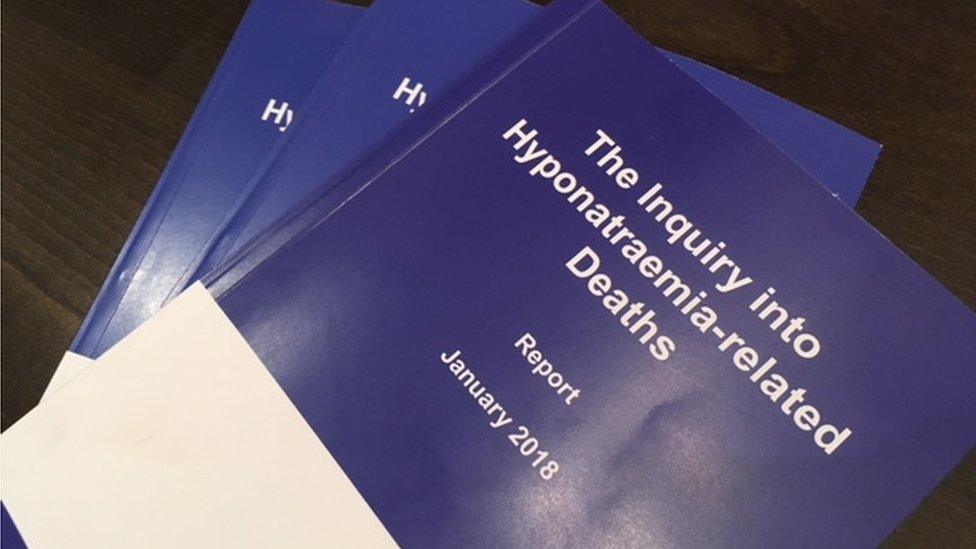Hyponatraemia deaths: Family reject health trust apology
- Published

Nine-year-old Raychel Ferguson died in hospital in 2001
The brother of a nine-year-old girl who died from hyponatremia has described a health trust's apology as one of "shame and guilt."
Raychel Ferguson from Londonderry died in 2001.
Following an inquiry into the deaths of five children, including Raychel in Northern Ireland's hospitals, the Western health trust "unreservedly" apologised to the family.
However, Jason Ferguson said he could not accept the trust's apology.
"It is an apology of shame and guilt," he told BBC Radio Foyle.
"I have heard how apologetic and sincerely sorry they are. But I reject that apology because it took them 13 years to admit liability for Raychel's death.
"They should be ashamed of themselves because they contributed to our grief and pain as a family."
Raychel died after being administered with a lethal dose of intravenous fluids, a day after an appendix operation at Altnagelvin Hospital, Londonderry.
The Hyponatraemia inquiry into the deaths of Raychel, Conor Mitchell, 15; Claire Roberts, nine, Adam Strain, four; and 17-month-old Lucy Crawford, in hospitals in Northern Ireland, was set up in 2004.
All the children apart from Conor Mitchell were found to have died from hyponatraemia-related conditions.

Adam Strain, Raychel Ferguson, Claire Roberts and Conor Mitchell. Lucy Crawford's family chose not to release a photograph
Hyponatraemia occurs when there is a shortage of sodium in the bloodstream.
The Belfast, Southern and Western health trusts said they "unreservedly apologise" to the five families.
The inquiry found that four of the children's deaths were avoidable.
It found there was a "reluctance among clinicians to openly acknowledge failings" in the death of Raychel Ferguson and was heavily critical of the "self-regulating and unmonitored" health service.
Mr Ferguson said he has "very vivid memories" of his sister's death and could not speak publically about it until now.
"I was only 7 - I couldn't understand why everyone was crying," he said.
"As a child it had a significant psychological impact on me. I could never ever talk about it.
"I understand now why we didn't do a lot of things like go to the park - as a family every night we went to the grave, because that is where Raychel was," he said.
The establishment of a duty of candour on medical professionals "to tell patients and their families about major failures in care and to give a full and honest explanation" was one of 96 recommendations made by the inquiry.

The inquiry's report has made 96 recommendations
Mr Ferguson said making this duty a legal requirement- dubbed Raychel's law - "will ensure no other family will have to go through what we had to."
The BBC understands the Western Trust will meet with the Ferguson family shortly.
Meanwhile the General Medical Council (GMC) said they are currently reviewing the inquiry's report to consider whether they "need to investigate any named doctors or take any further action."
PSNI Detective Chief Superintendent Raymond Murray said police are "continuing to carefully assess the contents of the public enquiry report regarding hyponatremia and related issues before deciding what action needs to be taken."